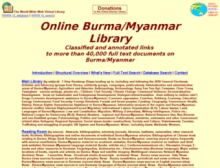Resource information
In military-ruled Burma, also known as Myanmar, large-scale natural gas
projects have directly and indirectly led to violations of basic human rights
through the complicity of multinational corporate actors. These abuses are
ongoing and there is an unreasonably high risk they will increase as more gas
projects are developed. This paper assesses the past, present, and future human
rights impacts of large-scale natural gas extraction in Burma, and the
implications these impacts have in terms of corporate accountability. The
paper provides background information regarding Burma’s government,
economic policy, and the energy sector and considers past and present human
rights abuses connected to the Yadana natural gas project, developed by a
consortium including Chevron, Total, PTTEP, and MOGE. The authors
argue that the companies are complicit in ongoing human rights abuses in
connection to their investment. The paper then describes the threat of future
human rights abuses in connection to the country’s largest offshore gas
deposits, concluding that there is a high risk that current human rights abuses in the proposed project areas will be exacerbated by the new gas production,
and that there will likely be abuses directly linked to the Shwe pipeline project.
Finally, the authors assess the interests and actors involved in the Southeast
Asia regional energy security dynamic as it relates to Burma’s fast growing
oil and gas sector, human rights, and corporate accountability. They argue
that the energy security strategies of China, Thailand, and India—and by
association, the national oil corporations under those governments—relying
on Burmese resources have paid dangerously inadequate attention to the
protection of human rights.


